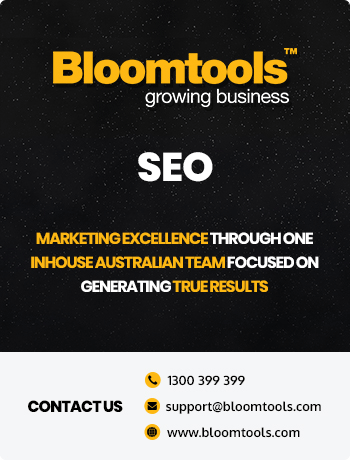2025: The Year AI Search Decides Which Businesses Get Found (and Which Don’t)
)
For the past two decades, “Google it” has been the default way people search for anything online. But in 2025, the world of search is shifting faster than most business owners realise. The rise of AI search engines, tools that don’t just list links but answer questions directly, means people are increasingly discovering businesses, products, and services without ever scrolling through a traditional results page.
And here’s the kicker: the businesses that take notice now will have the competitive edge. Those who wait risk quietly vanishing from their customers’ digital line of sight.

The New Search Landscape
In 2025, consumers will have options beyond Google like never before. Depending on what they’re looking for, whether it’s a local vet, the best tool for their project, or a “how-to” guide, different AI engines are becoming their go-to search companions.
Here are some of the most influential:
- Google AI Mode (SGE): Integrates AI reasoning with Google’s Knowledge Graph. It offers conversational answers, maps integration, YouTube content, and visuals. Currently rolled out in the US and India, it’s only a matter of time before it spreads globally.
- Perplexity AI: Known for citation-backed answers and transparency, Perplexity is hugely popular for research, fact-checking, and deep dives. It’s quickly grown to more than 14 million monthly users and is a favourite of marketers, academics, and professionals who want sources they can trust.
- ChatGPT Search: Blends conversational Q&A with real-time updates, local info, and fact-checking. It’s strong at synthesising complex information and helping users explore topics thoroughly.
- Arc Search: A mobile-first AI search engine with summarisation and voice commands, designed for speed and convenience.
- You.com & Brave Search: Privacy-first engines that appeal to users who don’t want their searches tracked. They’re carving out niches by offering transparency and independence from the big players.
- Comet (Perplexity’s AI Browser): One of the newest innovations, launched in 2025, Comet goes beyond search to act like a cognitive assistant. It can summarise across multiple open tabs, compare products, even book meetings - all while surfacing verifiable sources.
Together, these players are reshaping search behaviour into something far more conversational, multi-modal (text, voice, images, video), and immediate.
Why Businesses Must Pay Attention
1. Search behaviour is changing
AI engines already answer up to 60% of queries directly on the page, which means fewer people are clicking through to websites. But those who do click are often further along the decision journey, closer to becoming a paying customer.
2. Visibility is fragmenting
It’s no longer enough to rank well on Google. Your potential customers may be searching on Perplexity, asking ChatGPT for recommendations, or using Bing Copilot inside their Microsoft tools. Being visible across this fragmented ecosystem is essential.
3. Content expectations are higher
AI search engines prioritise content that is clear, authoritative, and structured. They want direct answers, schema markup, FAQs, and fresh, trustworthy insights. In short, keyword-stuffed pages won’t cut it anymore.
4. Competitors are moving fast
In Australia alone, AI adoption is accelerating: more than 12 million Australians are using AI tools monthly, and businesses are rapidly experimenting with AI in marketing and operations. Those who act now will be the ones AI engines recognise and recommend first.
5. Risk of invisibility
Just as businesses that ignored mobile optimisation lost traffic a decade ago, the same risk applies now with AI search. If your content isn’t AI-ready, you risk disappearing from where customers are looking.
How to Be Found in AI Search
Success in AI search isn’t about abandoning SEO, it’s about evolving it. The new discipline is called Answer Engine Optimisation (AEO), and it focuses on making your content easily discoverable, trustworthy, and usable by AI systems.
Some key tactics include:
- Writing clear, direct answers to common customer questions.
- Structuring content with FAQ, HowTo, and LocalBusiness schema.
- Building authority through citations, guest posts, and community mentions.
- Keeping content fresh, factual, and conversational in tone.
Creating topical clusters so AI sees you as an expert, not a generalist.
The Bottom Line
AI search is no longer a “future trend.” It’s here, it’s growing, and it’s changing how customers find businesses like yours. The question is: will your business show up?
Call to Action
That’s exactly where our AI Search Engine Audit comes in.
We don’t just run automated reports. Our team spends hours manually testing your keywords across today’s leading AI search engines - Google AI Mode, Perplexity, ChatGPT, Bing Copilot, and more to uncover why your competitors are appearing above you, and how you can win those spots.
You’ll get:
- A clear visibility report across multiple AI search engines.
- Identification of the technical and content gaps holding you back.
- A prioritised action plan to future-proof your visibility in AI search.
- Bonus: one hour of our SEO experts implementing key technical fixes straight away.
Don’t risk becoming invisible as AI search overtakes traditional search. Get ahead now and secure your place in the results customers are already using.
) Author:Tracey Voyce
Author:Tracey Voyce| Tags:NewsPromotionsSearch Engine Optimisation |
Check Out Our
Recent Articles
- 2025: The Year AI Search Decides Which Businesses Get Found (and Which D...
- How the Facebook Algorithm Works for Business Posts in 2025
- Is It Worth Getting Reviews on Your Facebook Business Page?
- Think Your Google Business Profile is Set and Forget? Think Again. Why O...
- Unlock the Power of Email Automation: Build Loyalty, Save Time and Drive...



